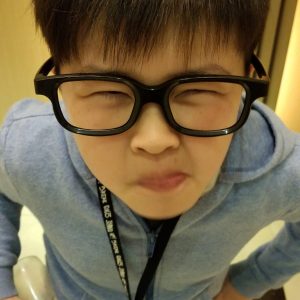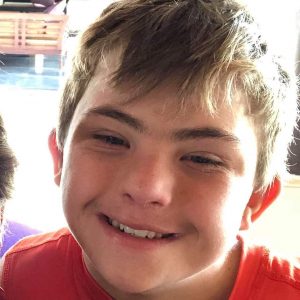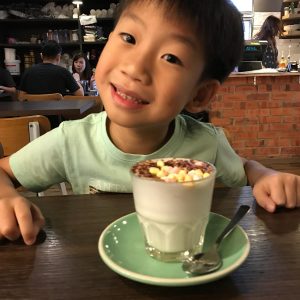Services
- Autism
- Attention Deficit
Hyperactivity
Disorder (ADHD)/
Dyslexia - Learning Disorders
- Specific Language
Impairment (SLI) - Hearing Loss/
Hearing Impairment - Group Sessions for Social Interaction and Classroom Interactions
- Home Visits
- School Visits
- Parent Training/
Shadow Support
Training/
Teacher Training/
Lecturing
Attention Deficit Hyperactivity Disorder
Two of my sons have been diagnosed with ADHD and Dyslexia. My eldest son has the diagnosis of Autism, ADHD and Specific Language Impairment. Living and parenting children with these issues can be challenging. It sometimes feels like an endless roller coaster ride that we simply cannot get off.
SESSIONS FOR CHILDREN WITH ADHD
The sessions would first focus on getting the child to sit down and stay focused for however short a time. As the child’s attention may be short, we capitalise on the moments when they are focused. These moment will get longer.
There might be brief periods of mental breaks of short minutes during the sessions as they child may not be able to sustain his attention throughout the entire session. Insisting that the child focus for the whole session might be counterproductive.
The activites and toys used do not have to be changed frequently. What is important is that there are different goals being achieved using the same toys or resources. It might be better for the child not be constantly given something new when his attention is not there.
AREAS WHICH MAY BE AFFECTED BY ADHD
Focus and Learning
Children with ADHD may have difficulty staying engaged and focused. This tends to get in the way of learning. The learning process itself may be fine but the challenge with maintaining focus may affect the learning process. When this happens, learning may be sporadic and information given by the class teacher may be missed or misunderstood.
Learning can be broken down into piecemeal pieces. For example, for Science, it might be easier for the child to learn if each topic is broken down into 15 micro parts and addressed individually.
School test and examinations
Test and examination scores are likely to be affected because the child may not be able to sustain their focus throughout the allocated time for the test or exam. Applying for them to have extra time during school tests and exams might help. This give them a longer time to finish the paper. They can be trained to use the extra time to check their answers.
Handwriting
Handwriting may be a concern. My son who has ADHD struggles to write. He has difficulty reading what he wrote in school. The directionality of the handwriting may also be affected. The letter “d” might be written with an upward stroke followed by a reverse “c”.
Very close supervision of writing attempts and constant reminders of proper writing directions, size and strokes might help produce better quality handwriting eventually.
Organisation of Thoughts and Task Completion
Organisation is usually a challenge. My children have difficulty organising their thoughts. They might struggle with expressing themselves because they are not able to put long trains of thoughts into language. They might not be able to finish telling me what they started. Halfway through, something else might attract their attention and they might move or look away.
Children with ADHD may not be able to organise or complete their work flow. They might find it hard to start something or when they do, they might not be able to continue what they are doing.
CLOSE SUPERVISION OF HOMEWORK
An adult might have to sit next to the child, watch and supervise his/her homework. Attention may have to be given to how they answer and how they write.
Organising their school things, their personal things and their toys may be difficult for these children. Their school things might constantly be in a mess. School bags might consist of torn worksheets, wet and/or torn books, broken pencils, broken pen or other damaged stationery. There might be stains from pencil marks and ink. School letters might be crumpled or might not even be there.
ORGANISE WITH FOCUS
While organising, keep them focused on the items that they are supposed to be organising. We can also take these items and put them in a separate area or room in the house and get the child to focus organising these items away from their other things.
MINIMISE DISTRACTION
We can minimise the activities and physical objects/toys around the child. Decreasing potential distraction such as colourful rugs and posters around the child’s environment might also be helpful.
BRING THE FOCUS BACK
Constant verbal redirection of the child’s focus back onto the learning activity or any other activity or conversation might help. We can keep reminding them to stay on topic during conversation and to highlight to them when they are going off topic. Explain to them that what they might be saying is irrelevant to what is being discussed.
Perseverance in getting the child to complete the tasks given might help the child learn the importance of task completion.
Patience and continued collaboration with the school teachers on the child’s progress is important.
Social Interaction
The child’s social interaction may also be impacted because the child might have difficulty staying focused during conversations with their peers, teachers, caregivers and other adults.
WHAT DID I SAY?
At home, there are many occasions when I would tell my children something and it would not register because of their compromised attention span. For example, I would tell them, “After school, we will be going to Raffles City to have lunch at Sushi Tei.” Immediately after saying this, one of them might ask, “What are we doing after school today?” This happens several times throughout the day.
When information is not registered, it can be difficult to have an extended conversation with these children. Their focus drifts frequently and it is challenging to keep repeating what we just told them.
It might help if we periodically check what the child has heard, for example, by asking “What did I say?”.
Dyslexia
This learning disorder may be an issue for children who may have ADHD. Quite often, children with ADHD may have Dyslexia too. All my sons have ADHD and two of them have ADHD and Dyslexia.
Dyslexia is basically a challenge in reading and spelling. In my dyslexic son’s own words, “Letters and words do not sound like how they look”.
Some of the spelling that my children made were:
- “tht” for “that”
- “ths” for “this”
- “mak” for “make”
- “strugled” for “struggled”
- “stagged” for “staggered”
- “unstatyly” for “unsteadily”
- “crowed” for “crowd”
- “bookd” for “booked”
Dyslexia usually does not affect the children’s cognitive abilities. The child may have average IQ but struggles to read and spell.
They may be able to express themselves eloquently in verbal form and in the written form but spelling errors may be frequent.
For my dyslexic children, they are able to read relatively well because they use their word and world knowledge to understand and predict the content of the passages. For words that they cannot read, they guess what the words are based on the overall content of the passage. Usually, they guessed the word correctly. This type of ability masks their dyslexia. However, when they write, their dyslexia is obvious from the numerous spelling errors they make.
BREAK UP THE WORDS – MAKE THEM FUNNY
Words can be broken up into syllables that might make more sense to them. For example, instead of breaking up “missing” into “mi-ssing”, it can be broken up into “mis-sing”. Associating the word with something funny might help them retain the word better. So, “missing” could be associated with someone who “misses singing”.





